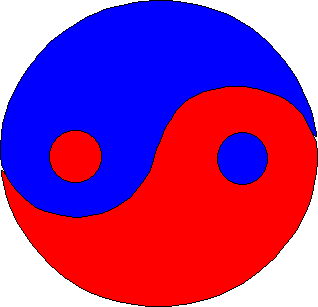|
|
SPATIAL
STRUCTURE OF
THE CANONICAL SET OF
AMINO ACIDS Personal
page number 2 |
|
Book V. Karasev and V. Luchinin "Introduction to the design of bionic
nanosystems"
Sites V.A. Karasev: Principles of topological http://genetic-code.narod.ru/index-e.htm New Molecular
vector machine of
proteins http://vector-machine.narod.ru/index_e.htm Aid to the atheist: A new theory explaining essence and origin of
life http://ateistu.narod.ru/english.htm |
Welcome! Thank you for visiting my personal page. Proteins consist of
20 different amino acids, which are called canonical. It is these amino acids
are encoded by triplets of the genetic code ( http://genetic-code.narod.ru/index-e.htm ). The question of why the canonical amino
acids present in proteins and why it's just 20 so far in science has no an
exact answer. There are various approaches as to classification of the
canonical set of amino acids, as well as to the construction of their spatial
structure [1-11], but they are
questions not fully answered. On several web pages, step by step, we will try to
answer these questions from the position of the theory of topological coding of proteins we developed ( http://genetic-code.narod.ru/index-e.htm
). The need for
presentation on multiple pages connected with the fact that the issues
discussed are not as simple as they seem at first sight, and have several
levels of difficulty. On this page we present the spatial structure of the
canonical set of amino acids [12-16], without explaining
the nature of this structure. Principles of construction of the
spatial structure of the canonical set of amino acids: 1. Foundation for
building - the structure of the dodecahedron. 2. The principle of
antisymmetry of the side chains of amino acids in relation to each other at
the location on the dodecahedron. 3. Location of side chains
on the dodecahedron - ascending molecular weight. The
second page, which we plan to open, will be associated with the of the molecular
machinery of proteins http://vector-machine.narod.ru/index_e.htm That's
it, you'll know why we managed to build a structure of amino acids on the
dodecahedron with the principle of antisymmetry. Other
pages are also planned, but we won't talk about them yet. Our page is aimed at users of any
level, so those that already "know everything", can pass the
elementary things that may be of interest to unprepared readers. Address for
connection: amino-acids-20@yandex.ru |
|
|
|
|
4. Antisymmetry in system of canonical amino acids
5. Variant of constructing of a system of canonical amino acids
without a dodecahedron
|
|
So, you have got acquainted with the model of
structure of the canonical set of side chains of amino acids developed by us.
The basic model is constructed on a dodecahedron, but its construction and
without a dodecahedron is possible. Essentially they are similar. However there
is a choice problem: what variant is more preferable? For us it is a question
solved: more preferably nevertheless a dodecahedron. However, to make this
choice consciously, it is necessary to familiarize with other our
page devoted to model of the molecular vector machine of proteins http://vector-machine.narod.ru/index_e.htm.
We wish you the further scientific impressions!
Address for connection: amino-acids-20@yandex.ru
RThe Work
was carried out at the Centre of Microtechnologies and Diagnostics (CMID) of
the St.-Petersburg State Electrotechnical University "LETI", at
financial support of University
Acknowledgements:
I express my sincere gratitude to A.I. Belyaev for
help in editing the English version of this page.









